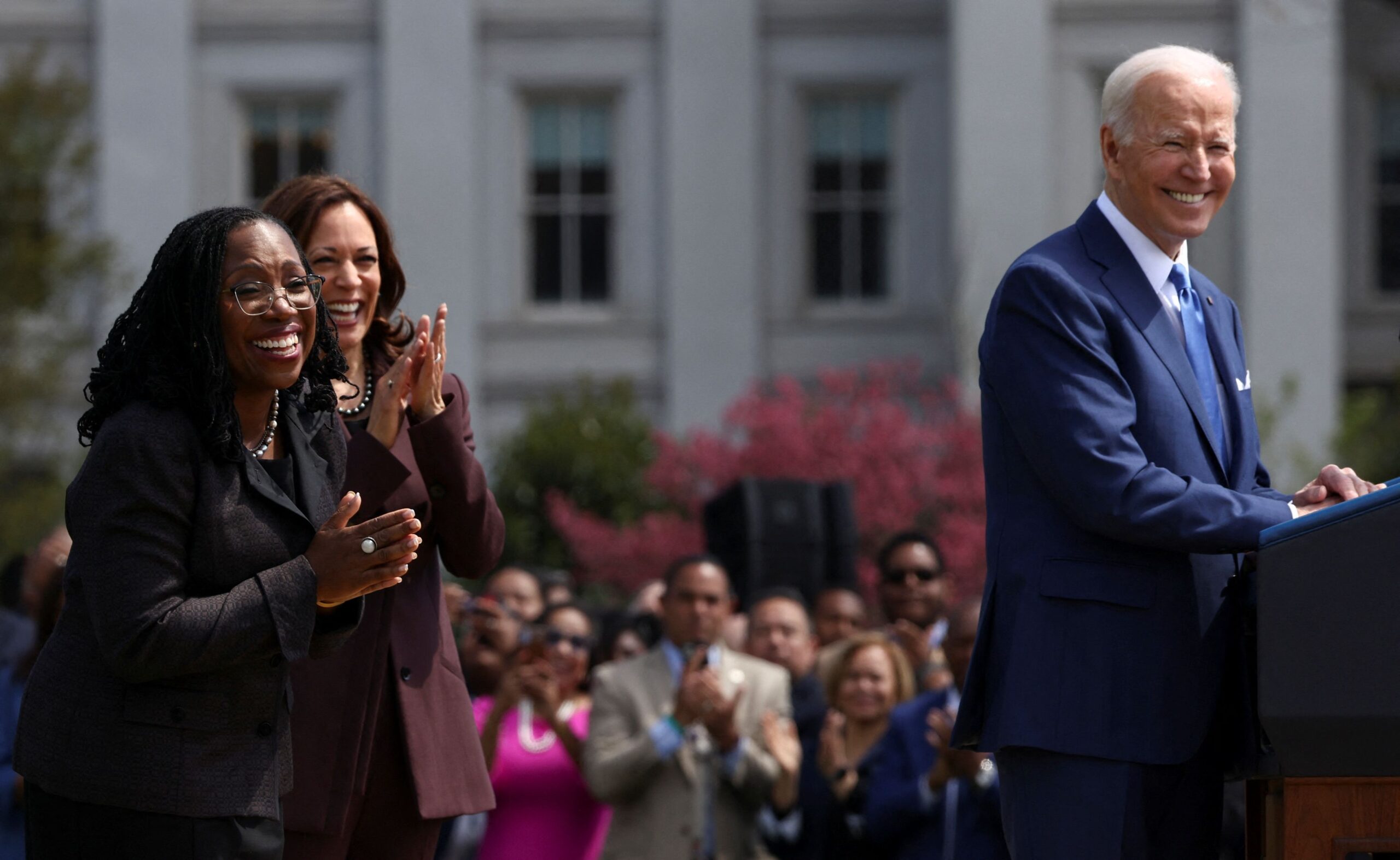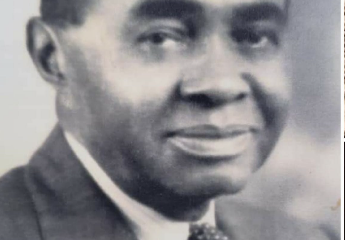Featured
A Political Analyst Cites Black Women’s ‘Explicit Demand’ As Crucial In Confirmation Of New Supreme Court Justice

The first Black woman confirmed to the United States Supreme Court, Judge Ketanji Brown Jackson, celebrated at the White House today with President Biden and Vice-President Kamala Harris.
African Americans are applauding the historic milestone which makes Jackson only the third African American on the nation’s highest court. Justice Thurgood Marshall became the first and conservative Justice Clarence Thomas was the second.
TheVillageCelebration spoke with author and political science professor, Sekou Franklin, about the role Black women played in Jackson’s ascension to the Supreme Court, the Republican’s playbook during the confirmation hearings and Biden’s recent judicial decisions.
TheVillageCelebration: What are the most significant takeaways from the Supreme Court confirmation of Judge Ketanji Brown Jackson?
Sekou Franklin: Number one, of course, is the Supreme Court was historically a place African Americans were not envisioned to be placed. Secondly, her nomination process is a direct result of the mobilization of African American women in this election. There is a direct line between African American women who explicitly mobilized in this election and made that demand – an explicit demand – as an outcome of the potential victory or what became the victory of the Biden/Harris ticket. So, Black women who mobilized, the outcome of that mobilization produced two groundbreaking outcomes: Kamala Harris’ Vice-Presidential candidacy, and also now the Ketanji Brown Jackson nomination, and I believe that should be expressed explicitly. Also, the Supreme Court is the highest court in the land — court that was exclusively intended for a select group of folks who do have lifetime tenure. She’s young, she’s in her early 50s, and it’s a lifetime appointment, and she can shape the court if she’s able to survive for at least a generation and maybe a generation-and-a-half.
TheVillageCelebration: Some of the Senators on the Judiciary Committee were criticized for the questioning during Judge Brown Jackson’s confirmation hearings. What was the reason for that display of political grandstanding?
Sekou Franklin: I saw an attempt by that wing of the Republican Party to do a number of things – all of which is playing for Vote 2022, but really 2024, which is to try to criminalize Ketanji Brown or say she is soft on crime to virtue signal to the Q-Anon wing of the Republican party and their voters, which still is a significant amount of voters who might be critical to get to the primary and assuming that Donald Trump is out of the mix, that base of the Republican Party is still going to be there. So to get through a primary election, the Cottons, the Cruzes, the Josh Hawleys – all of whom have their sights set on the prize or the presidency, whether it be 2024 or 2028, are either afraid of that group, that wing of the Republican Party or want to use it as a mobilizing force and/or need that wing from their perspective to get through a contentious primary in 2024 or 2028 which the base of the party is going to shape that, but in doing that, it was troubling.
TheVillageCelebration: You have looked closely at President Biden’s judicial nominations and found an historic bent. Tell us more.
Sekou Franklin: I think that there are some intellectuals who are saying, ‘What has Biden done for the Black community?’ The courts are less visible than a lawmaker sponsoring a voting rights bill or a lawmaker sponsoring a “Build Back Better” bill and those two bills failing. The courts are less visible, but they have long term impact. And the conservatives have figured it out, too. The conservatives have figured out that they can build a multi-generational front in the courts while everybody is arguing just about what happens in the legislative and executive branches, they can build a multi-generational front. And I think that if you were to look at Biden’s nominees in the courts, especially the appellate courts which have jurisdiction over all cases, I think that it’s quite impressive in terms of the nominees. It’s not just that he’s nominating persons of color. But he’s nominating Black women, and not that he’s just nominating Black women, but he’s nominating Black women who have a very serious record and history of working in the arena of social justice and the restorative issues.

-

 Black History5 months ago
Black History5 months agoThe untold story of a Black woman who founded an Alabama hospital during Jim Crow
-

 Featured9 months ago
Featured9 months ago‘No Closure’ In Town Where Five Black Residents Were Either Murdered, Died Suspiciously Or Are Missing
-

 Black History9 months ago
Black History9 months agoBlack History Lost and Found: New Research Pieces Together the Life of Prominent Texas Surgeon and Activist
-

 Featured9 months ago
Featured9 months agoFounder of “The Folding Chair” Podcast Calls Montgomery’s Brawl ‘Karma’
-

 Featured8 months ago
Featured8 months agoThousands ‘Live Their Dream’ During National Black Business Month
-

 Featured10 months ago
Featured10 months agoJuneteenth And ‘246 Years Of Free Labor’ Are Key To Conversations About Reparations









